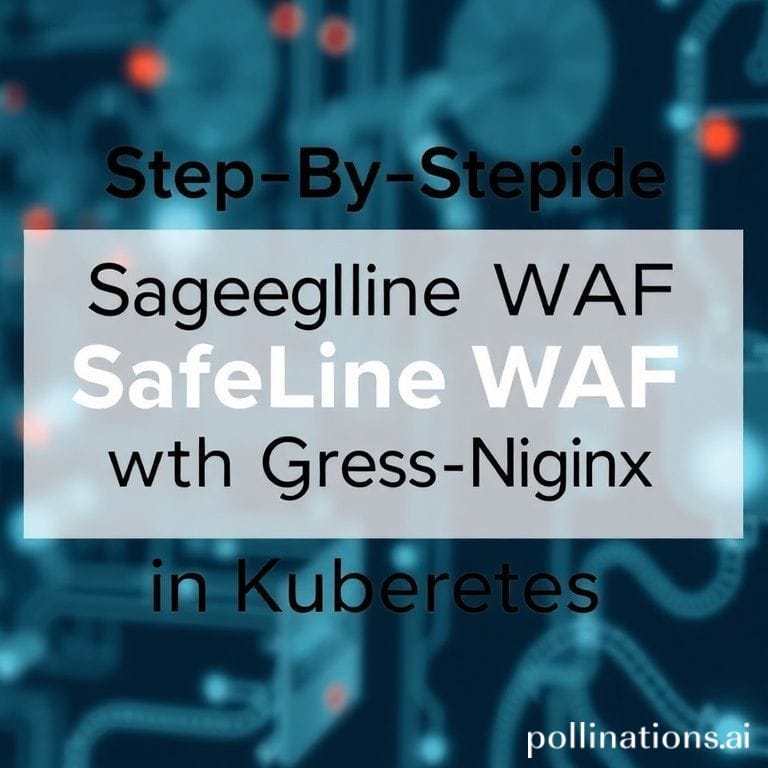Running critical workloads in Kubernetes demands robust security measures, especially when managing external access through Ingress-Nginx. As applications scale, threats like SQL injection, cross-site scripting (XSS), and remote code execution (RCE) attacks become increasingly prevalent. This guide demonstrates how to fortify your Kubernetes infrastructure by integrating SafeLine Community Edition – a free, high-performance Web Application Firewall (WAF) – with your Ingress-Nginx controller.
Essential Requirements
Before implementing this solution, ensure your environment meets these prerequisites:
- SafeLine version 5.6.0 or newer operational in your cluster
- Active Kubernetes environment with cluster-admin privileges
- kubectl CLI tool installed and configured
- Helm package manager (version 3.x recommended)
Phase 1: Configure SafeLine Parameters
We begin by establishing communication between Ingress-Nginx and SafeLine’s detection engine using a Kubernetes ConfigMap. Create this manifest in your preferred editor:
apiVersion: v1
kind: ConfigMap
metadata:
name: safeline-config
namespace: ingress-nginx
data:
host: "detector_host" # Your SafeLine detection engine IP or DNS name
port: "8000" # Default SafeLine communication port
Apply the configuration to your cluster:
kubectl apply -f safeline-config.yaml
Phase 2: Helm Deployment Approach
For new installations using Helm, modify your Ingress-Nginx values file to activate the SafeLine plugin:
controller:
config:
enable-safeline: "true"
safeline-engine: "http://$(detector_host):8000"
extraVolumes:
- name: safeline-config
configMap:
name: safeline-config
extraVolumeMounts:
- name: safeline-config
mountPath: /etc/nginx/safeline-config
Complete the deployment with these Helm commands:
helm repo add ingress-nginx https://kubernetes.github.io/ingress-nginx
helm install ingress-nginx ingress-nginx/ingress-nginx -f values.yaml
Phase 3: Custom Image Construction
For environments requiring customized Ingress-Nginx builds, incorporate SafeLine through these image modifications:
FROM nginx/nginx-ingress:latest
# Install SafeLine WAF module components
RUN curl -L https://download.chaitin.com/safelinux/$(uname -m)/safeline -o /usr/local/bin/safeline
&& chmod +x /usr/local/bin/safeline
# Append SafeLine directives to Nginx template
RUN echo 'load_module /usr/local/bin/safeline.so;' >> /etc/nginx/templates/nginx.tmpl
Build and push your customized image to your container registry:
docker build -t your-registry/custom-ingress:latest .
docker push your-registry/custom-ingress:latest
Verification and Validation
After implementation, confirm proper integration:
kubectl exec -it ingress-nginx-controller-xxx -- nginx -T | grep safeline
Expected output should show loaded SafeLine modules and active configurations. Test WAF functionality by sending a simulated attack payload to your application endpoint. Properly configured protection should block requests containing malicious patterns.
Troubleshooting Common Issues
If encountering integration challenges, check these common points:
- Verify network connectivity between Ingress-Nginx pods and SafeLine detection service
- Confirm ConfigMap values match your SafeLine deployment parameters
- Ensure compatibility between SafeLine version and Nginx module architecture
- Check controller logs for WAF initialization messages
Implementing SafeLine WAF with Ingress-Nginx creates a security barrier that automatically filters malicious traffic before it reaches your applications. This integration maintains performance while adding critical protection against OWASP Top 10 vulnerabilities, bot attacks, and zero-day exploits. Regular rule updates and performance monitoring ensure ongoing protection as your Kubernetes environment evolves.

Leave a Reply